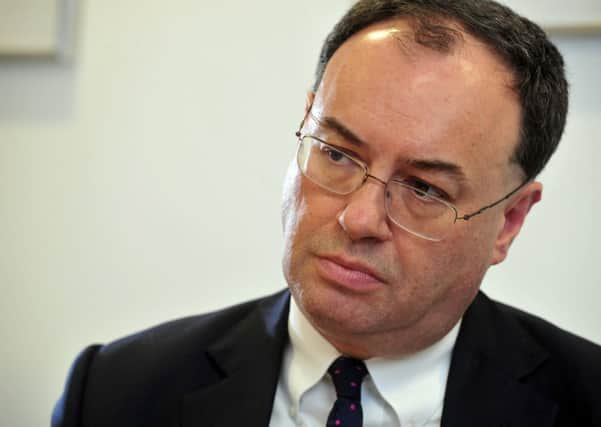Andrew Bailey: Banks yet to fully learn lessons from financial crash


In an interview with The Yorkshire Post, Andrew Bailey said the banking system is “more resilient all round” with stronger levels of capital and liquidity.
But he warned that the sector still has issues with the way it treats customers, its conduct in financial markets and in respecting rules on money laundering and financial sanctions.
Advertisement
Hide AdAdvertisement
Hide Ad“You put all those together and say have they got it? The message there would be I’m afraid it’s still work in progress,” Mr Bailey said during a visit to Leeds yesterday.
He is deputy governor for prudential regulation, which means he is responsible for ensuring the safety and soundness of UK financial firms to help protect and enhance the stability of the UK financial system.
The Bank of England faced renewed criticism over its response to the crisis earlier this month following the publication of historic minutes from meetings in 2007-09.
Mr Bailey said: “People wrote articles saying these people were making it up as they went along and I would say you should have come and been with us at the time. This was not easy.”
Advertisement
Hide AdAdvertisement
Hide AdHe said that while the Bank has made a lot of progress in coming up with policies to prevent another financial crisis, it will take “a few years” to implement these reforms.
Mr Bailey said the most difficult challenge is solving the problem of banks that are too big to fail.
He added: “Having a banking system that is dependent on taxpayers’ money is unacceptable.
“I have a balanced message: nobody should think today we have got to the end point but I think we have put in place some very important parts of the solution.
Advertisement
Hide AdAdvertisement
Hide Ad“The biggest part we put in place a month or so before Christmas with the agreements at Brisbane among the G20 leaders that there will be loss-absorbing capacity or bail-in.
“The real point there is you are transferring the ultimate liability from the taxpayers to the creditors of the banks themselves.
“But you have to do that in such a way that you don’t destabilise the institution because the thing we have learnt the hard way in the crisis that whatever you think of banks, they provide an absolutely critical part of the economy.
“Without them we can’t function. We have to enact these solutions without bringing the institutions down around us.
Advertisement
Hide AdAdvertisement
Hide Ad“I think in terms of putting the building blocks down, we have made a lot of progress and I think we can do it, but don’t underestimate this as a very big challenge.”
Asked if Britain has still banks that are too big to fail, he said: “We have proved that sadly. They are on the way. We should recognise this is very much a work in progress.”
The National Audit Office has estimated that combined taxpayer support for the UK banking system peaked at £1.162 trillion in the form of guarantees and cash.
Mr Bailey said small businesses are still very cautious about borrowing from banks.
Advertisement
Hide AdAdvertisement
Hide AdHe said: “You can really hardly blame them given the recent history.
“There is more credit available. The supply of credit that the banks are prepared to make available has increased, but I think small businesses are being pretty cautious about taking up that supply.”
He added: “They may feel the direction and strength of the recovery still has uncertainty around it, so you are cautious about investment, even though overall business investment is picking up and is picking up more strongly than we thought it was.”
Mr Bailey said small businesses also need to be confident about what it is they buying, regarding of the terms and conditions.
Advertisement
Hide AdAdvertisement
Hide AdHe added: “Banks have to recognise and I think they do recognise they have work to do to convince customers and would-be customers that it’s different.”
Asked about the state of the UK economy, Mr Bailey said: “The picture with the UK economy at the moment has been one of solid progress out the problems caused by the financial crisis.
“It is encouraging, but we have added the clear message that we are concerned about some of the influences, the potential for things to wash onto the UK from other parts of the world.”
Mr Bailey said surveys show concerns about geopolitical and cyber risks.
I promise to pay the bearer...
Advertisement
Hide AdAdvertisement
Hide AdAs chief cashier from 2004-11, Andrew Bailey’s signature appeared on all Bank of England notes issued during his time in the role.
In 2003, the total stock of notes in circulation was around £30bn. He said: “I would guess that many people would think cash is a somewhat declining method of paying for things.
“They would be surprised to know that the stock of notes in circulation the last time I looked is around £60bn.
“It is a little counter-intuitive given all the advances in electronic payments that have taken place.”
He attributes it to ATMs making cash readily available, low interest rates and hoarding.